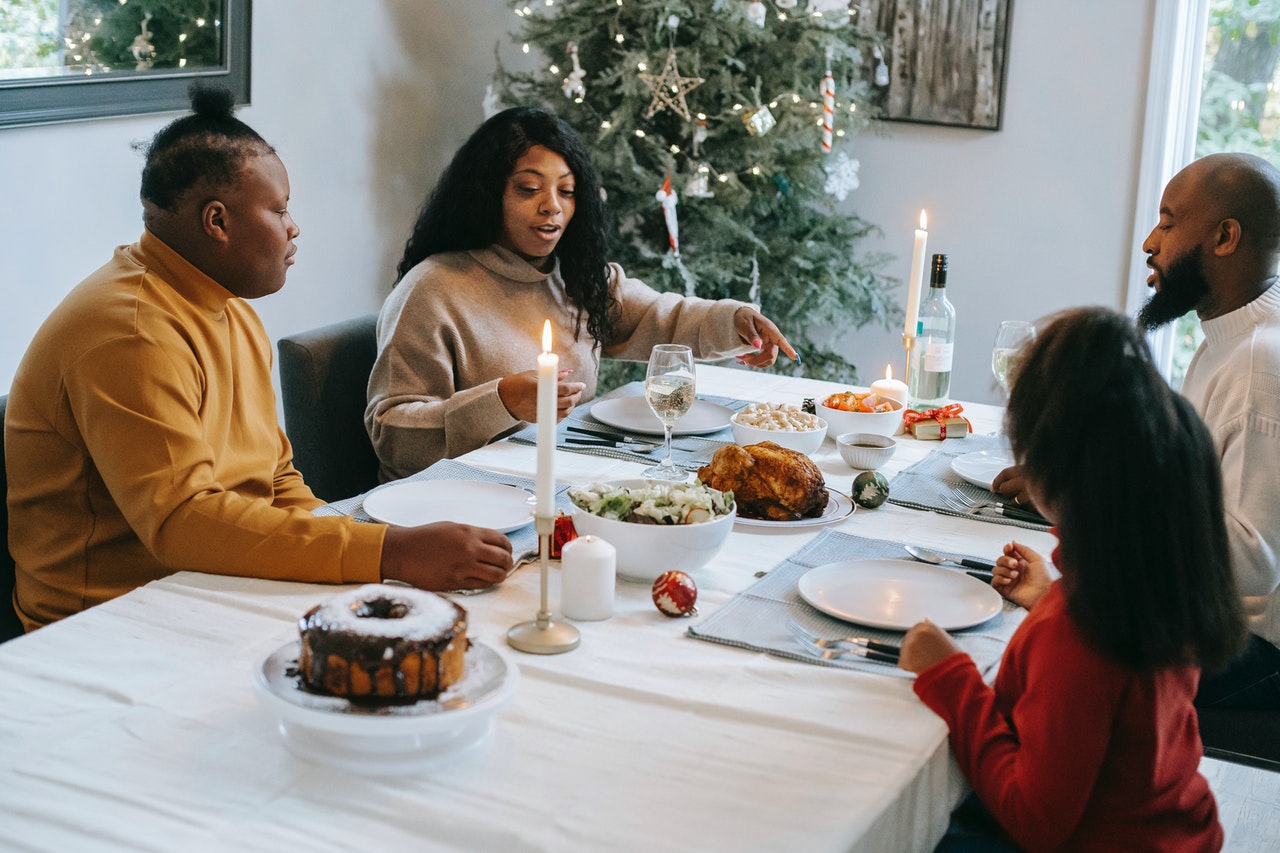
Breaking up During the Holiday Season: Five Tips for Healing
Dealing with a holiday breakup? Here are some tips for moving on.

Dealing with a holiday breakup? Here are some tips for moving on.

Is Your Attachment Style Negatively Impacting Your Relationships? By: Jessica Taylor, LPC What is Adult Attachment? Since the 1950’s, psychologists have been observing and discussing the impacts of the nature of the attachment between children and their primary caregivers. It was determined that the quality of this attachment significantly impacts the child’s behaviors. Our attachment style in adulthood appears to follow the same logic. Simply put, we can usually identify your attachment style based on how you feel (consciously or unconsciously) about, as well as how you react to, the idea of being rejected or abandoned in relationships. If you intensely fear being rejected or abandoned, and allow this fear to dictate your behaviors, you are going to struggle to maintain healthy relationships. While most researchers believe that our attachment style is inflexible, there are ways to manage the impacts of an unhealthy attachment type. The first step to this is gaining some basic knowledge about your own attachment and the impacts this has had on past and present relationships in your life. Factors That Impact Attachment Trauma If you have experienced relational traumas such as neglect and/or physical, mental, or sexual abuse, then this has likely ‘taught’ your brain that other people are unsafe and cannot be trusted. While you most likely still crave closeness with others, you are also going to try to protect yourself–sometimes in unhealthy ways. Mental health If you struggle with symptoms of a mental illness such as anxiety, depression, or bipolar disorder, you are more likely to be a ‘worrier,’ or struggle with low self-esteem. If we don’t confront the negative impacts that mental health issues have on our daily life, it can be extremely difficult to have a functional love relationship. Relationship to the primary caregivers. Primary caregivers don’t need to be perfect; they just need to be good enough. Good enough means feeding their child when they are hungry, hugging them when they cry and changing their diapers when they are dirty. If your primary caregiver neglected any of your basic needs when you were a young child, it is mostly likely going to impact your ability to trust and feel attached to other people throughout your life. Relationships witnessed during formative years. What was the nature of the love relationships you witnessed during your childhood and adolescence? Was there cheating, constant fighting or even domestic violence? If so, these experiences have impacted your worldview, at least when it comes to relationships. If the only happy and functional partnerships you witnessed were in movies or TV shows, it’s going to be extremely difficult for you to imagine that that is even possible to achieve in “real life.” Influential relationships throughout life If you experienced severe rejection from your peers during childhood and adolescence, this is likely going to have an impact on your attachment style. In addition, if you were in a toxic or abusive relationship, it is possible that you might carry some of the impacts of this union into your subsequent relationships. What are the Four Different Attachment Styles? Anxious (Preoccupied): People with an anxious attachment style seek out closeness and require consistent validation to feel as though things are “okay” in the relationship. They don’t like to be away from their partner, which can lead to them sometimes being described as ‘clingy.’ If they feel anxious about the status of a relationship, they will sometimes act out. Here is an example: Samantha texted her boyfriend Matt asking him if wants to go to dinner tonight, but he hasn’t responded to her for five hours. She starts to wonder if he is not responding because he is cheating on her, so she sends him angry and accusatory texts until he responds to her. It turns out that Matt didn’t respond because he was in an important meeting at work. Avoidant (Dismissive): Those with an avoidant attachment style will often protect their independence at all costs. What this looks like is avoiding closeness, not showing emotion, seeing their partner as clingy when they just want emotional connection, and finding reasons to end the relationship before things get too serious. For example: Ryan was really enjoying spending his time with Julie until she asked him if he would like to meet her family. This made him feel as though she was trying to rush things between them. When Julie texted him that night to see if he would like to make plans, he said that he needed some space. Secure: If you have a secure attachment style, you enjoy and thrive in close relationships. You are comfortable sharing your emotions with your partner and having ‘deep’ conversations. For example: Dan has a secure attachment style. His partner Sherry came to him and said that she felt hurt when he didn’t reach out to her all day. Dan apologizes for hurting Sherry and explains that he was extremely busy with work. They decide together how to handle situations that are similar to this in the future. Anxious-Avoidant (Fearful-Avoidant): This style of attachment is sometimes described as ‘disorganized’ as it often looks like mixed-messaging. Individuals with this attachment type deeply crave close connections, but often appear to be indifferent and even sometimes lash out when others try to get close to them. Here’s an example: Kate wants to feel loved, but she often times lashes out at her partner for small things. Although she wants to get married, she struggles to ‘settle down’ with one person and feels a lot of dissatisfaction in dating and relationships. If you still feel unsure of what your attachment style is, you can take a quick assessment created by the authors of the book ‘Attached.’ The Benefits of Understanding Your Own Attachment Style You will stop repeating negative patterns in relationships. Does dating sometimes feel like you are in the movie Groundhog’s Day? Maybe you keep getting ghosted only a few dates in with someone. Or you tend do something to sabotage the relationship yourself. If

By: Jessica Taylor, LPC You Can Improve Communication with Your Partner Today–Here’s How Communication issues come up in all love relationships, and studies show that communication and relationships and/or marital satisfaction go hand-in-hand. Arguments happen and they don’t necessarily mean that you are not a good match. It might mean that you just haven’t learned how to argue yet. Hear me out. Having zero arguments is just not a realistic goal. So, it is important to learn how to disagree in a way that does not damage the relationship long-term and cause resentments. Recognize Your Differences One of the most common factors that contributes to communication issues in love relationships is each person in the relationship having different communication styles. There are some people that want to stick and around and resolve things, no matter how heated it gets. Then there are people that are really good at taking space when things get heated but struggle to come back to finish the conversation. If this is the case, the goal is to meet in the middle. This means taking space when things start to escalate, but then coming back (preferably within 24 hours) to complete the discussion. Learn to See Disagreements as “Win-Win” When we think about arguments, there is often the idea that one person will ‘win’ and the other will ‘lose.’ If we begin an agreement with this mindset, things are more likely to get ugly. The goal of “fair fighting” is for each person to leave the conversation feeling good about the result. There are three steps necessary in accomplishing this: Step 1: Validate the other person’s side of the issue (i.e. “I hear you saying that you need my help with dinner right after I get home from work.”) Step 2: Share your side of the issue (i.e. “My issue with helping with dinner is that I feel so exhausted from a long day at work.”) Step 3: Work to create a compromise (i.e. “How about I take 20 minutes to decompress alone when I get home, and then I will help you with dinner?”) Make a Plan Let’s be honest, once things start to escalate during an argument, it’s really hard to think clearly, let alone act in a skillful way that does not damage the relationship. Therefore, it is important to create a communication plan when things are calm. Examples of questions that you both need to come together to answer are: How do you know when it is time to take space? Where will you each go and what will you do during the time that you are taking space? How long should you take space for? Don’t Let Resentments Build One of the most common reasons for relationships ending is built-up resentments. If your partner does or says something that upsets you, let them know in a skillful way (more on this later). The ideal time frame for sharing your feelings is 24 hours; anything longer than that feels like “garbage dumping” and will likely result in the other person getting defensive. Avoid Damaging Behaviors During arguments it is important to avoid behaviors like swearing, yelling and name-calling. Remember that hurtful things said and done in anger are not forgotten when things have calmed down. This is where taking space comes in. If you feel yourself escalating, taking some space from the situation, and engaging in activities that help you calm down during that time, will help prevent you from saying or doing anything that you will later regret. Don’t Point Fingers If there is an issue that you need to bring up to your partner, it will help reduce defensiveness if you start sentences with “I.” For example, “I felt hurt when you said that you were too busy to spend time with me.” This will probably kick off a more productive conversation than something like “Why don’t you ever want to spend time with me?!” Show That You Are Listening Have you ever noticed how quickly arguments turn into a (metaphorical) ping-pong match? In other words, neither person feels heard by the other, which means that they aren’t making much of an effort to be a good listener. In order to slow the process down it helps to engage in what is called active listening. Examples of non-verbal cues for active listening are eye contact and making sure that your arms are uncrossed, and your body is facing the other person. Here’s how to verbalize active listening: “So this is what I hear you saying…” Be Patient! Improving communication in love relationships for the long-term takes time and patience. If you are both committed to trying new things and showing vulnerability, things will get better with time, consistency, and mutual respect.

Holidays can be hard when you don’t get along with your family. There are simple strategies to take care of yourself and have healthy boundaries for a drama-free holiday with family.

The longest-running study of human well-being and happiness is the Harvard Grant Study. The study began in 1939 with a group of 268 male undergrads. Researchers have been following them ever since, asking them questions about their lives and interviewing them to find out how they grow and develop in their lives. The study itself is fascinating, and among its many insights are nuggest of wisdom about the true nature of human happiness. So, what really makes us happy in the long-term? In short, connection. Relationships are what really matter. Relationships with friends, family, and your romantic partner. Here’s what the study shows about relationships: Depth is more important than quantity The study finds that connection is all about depth, not about the amount of relationships you have that lead to happiness and well-being. You can have just a few close relationships and be really happy. In fact, it’s somewhat better to have a few high-quality relationships than a lot of shallow ones. So what makes for a high-quality relationship? Depth, in this sense, is defined by your openness with friends, family, and partner. How vulnerable and authentic you can be with each other. If you can open up to people and be who you truly are, those are the relationships that are most highly correlated with happiness in the long-run. Money and Power-although nice in the short-term-Do Not Lead to Greater Happiness This is something that we all know intuitively. Money and Power are highly valued in our culture (and pushed by marketing to make you think having nicer things will lead to happiness), but it just ain’t so. Other studies confirm that, beyond a certain income level, more money does not lead to greater levels of happiness. In the Harvard study, when these men reflect on their lives, they value relationships more highly than money, power, or social class. Researchers did note that it was important to be content at your work, but it was not important that you had the highest-level work or were the CEO of the company. Life’s Hardships can actually Lead to Happiness-If you can work through them with healing relatinoships. To quote from one man in the study: Before there were dysfunctional families, I came from one. My professional life hasn’t been disappointing—far from it—but the truly gratifying unfolding has been into the person I’ve slowly become: comfortable, joyful, connected, and effective. Since it wasn’t widely available then, I hadn’t read that children’s classic, The Velveteen Rabbit, which tells how connectedness is something we must let happen to us, and then we become solid and whole. As that tale recounts tenderly, only love can make us real. Denied this in boyhood for reasons I now understand, it took me years to tap substitute sources. What seems marvelous is how many there are and how restorative they prove. What durable and pliable creatures we are, and what a storehouse of goodwill lurks in the social fabric. . . I never dreamed my later years would be so stimulating and rewarding. The takeaway? Love can heal. Relationships can heal if they are supportive. Although friends and family are preeminent, a therapist can also provide a healing relationship. Contact us today for a free consultation if you want to talk to someone and increase the happiness in your own life.

A client of mine looked up at me through tears and said “I’m 26 and all of my friends are getting married. They don’t know I’m about to divorce.” She went on to talk about the particular and acute pain of the upcoming wedding season. She had 5 weddings to attend and she was a bridesmaid at two on them. At this point, she hadn’t shared with any of her friends about her recent decision to seek a divorce from her husband. “I’m 26 and all of my friends are getting married. They don’t know I’m about to divorce.” Although divorce has become less common on average, I see clients who are getting a divorce at a young age and carry shame and embarrassment around it. While a relationship ending is painful enough, it’s an extra burden to feel surrounded by your friends beginning their marriages, while yours is heading towards its end. Millennial Women and Divorce The divorce rate has been slowly declining since the 1990s. This is due to many factors, including people getting married at a later age, and having easy access to birth control. What is new about millennial marriages, however, is that more divorces are initiated by women than ever before. Now about two-thirds of marriages are initiated by women, when the inverse used to be true for previous generations, especially the Baby Boomers. Millennial women feel more empowered in relationships and have earning power that’s almost equitable to men, and this may lead to more of them seeking a divorce when a relationship if just not working. It’s also true that millennial women are surrounded by the ‘marriage season’ in their lives. That magical 4-5 years in your mid-20s and early-30s where it seems everyone you know is getting married. My clients who are struggling in their relationships or seeking divorce feel this keenly. It’s difficult to go to one more wedding, do one more toast, and eat one more mediocre salmon dish. How to survive Wedding Season amid a divorce If you are in the middle of a divorce, a separation, or simply going through a challeng in your own marriage, its important to be mindful and take care of yourself while you go to weddings and show up for your friends on their special day. Use compartmentalization to your advantage. Compartmentalization is a psychology term that simply means the ability to separate thoughts and feelings from one another. Sometimes it doesn’t serve you well to compartmentalize yourself into little boxes. Other times, it’s an essential tool for self-care. It’s ok to separate your own experiences from your loved ones around marriage. It ok to feel sad for your own situation or skeptical about the whole idea of marriage, and at the same time feel genuinely happy for your friends as they say “I Do’s.” Make a plan for the weddings you attend The key here is to give yourself permission to attend weddings and whatever way feels best for you. If you want to alone, do that. If you want to go with your spouse, that’s okay too. You don’t need to explain yourself either way. Your business is your business, and the wedding is for the couple getting married. If you feel that you are “lying” by showing up with your ex or your spouse in the midst of a divorce, remind yourself that you are present for your loved ones, and they don’t have the right to pry or make assumptions about your own marriage. Give yourself permission to bow out of some wedding invites If you really can’t get yourself to attend a wedding, that is completely ok. You need to give yourself permission to be authentic and take care of yourself. If you can’t attend a wedding and be present and supportive to the couple getting married, it’s ok to gracefully bow out. Make sure to send a thoughtful gift, express your deepest regrets, and spend the afternoon watching Netflix at home. And if you need some extra support during your Wedding Season, reach out to us to schedule a free consultation. Getting some outside advice is always helpful. We’re here for you.

Guest Post: This is a guest post from the wonderful professionals at Divorce Matters in Denver, CO. They can help guide you through a pain-free divorce. If you are getting divorced in Denver, CO you are far from alone. According to data provided by the United States Department of Health and Human Services (HHS), approximately 30 percent of American marriages end in divorce within the first ten years. Only 55 percent of U.S. couples make it to the 20th year of marriage. Dealing with a divorce can be incredibly challenging. In most cases, there are many complex logistical issues that need to be handled by all parties. With so much going, most people find it difficult to put much of their attention on their own emotional needs. This is why working with a qualified professional counselor can be extremely beneficial. A counselor can help provide a truly supportive and non-judgmental environment. In this type of environment, you will be able to better understand yourself, so that you can properly grieve and begin moving forward to a new stage in your life. Coping With the Emotional Effects of Divorce Many people underestimate the immense psychological impact of divorce. There is strong evidence that going through a divorce can adversely affect a person’s mental health. Of course, this does not have to be an inevitable result. It is important that you are able to anticipate the potential emotional effects of divorce so that you will be ready to deal with the challenges. Divorce is associated with: Feelings of anger; Feelings of resentment; Feelings of sadness or guilt; Feelings of abandonment; Loss of purpose; Loss of direction; Intense anxiety; Shame; and Overall emotional trauma. You may not be feeling all of those effects. In fact, you may not even totally understand what you feel. With divorce, it is common to be confused, conflicted, and disillusioned. One of the primary benefits of working with a high-quality professional counselor is that your counselor will be able to help you work towards finding clarity. Allowing the Grieving Process to Occur With a traumatic event like a divorce, the grieving process can be difficult. It can only occur once you are able to carefully confront your own feelings. Every person goes through the grieving process in a different way. Not only will the amount of time that it takes to grieve be different, but the form of the grieving process will also vary by person. It is important to work with a professional counselor who can help you work towards health and wholeness in a manner that is best tailored to your specific needs. Moving Forward With Your Life Your counselor can help you move forward with your life. Ultimately, the goal is to get you feeling better. While getting started, especially if you are unfamiliar with therapy, can be difficult, it does not have to be that way. Your professional counselor can work at a pace and in style that is best suited for you. This way, you can move towards acceptance and regain a sense of power and control over your own life.

I get asked this question a lot in my office. A new client will sigh resignedly on the couch and ask a brave question: Why Am I Still Single? Some people are single by choice, of course. But if you’re reading this that’s probably not you. You’ve read all the other advice about ‘putting yourself out there’ and meeting new people, but it still doesn’t seem to click. It feels lonely and isolating. Your best friend will tell you that you’re wonderful and those potential boyfriends or girlfriends are really missing out because you’re a catch. But I’m a therapist, and my job is digging deeper and some serious truth-telling, so here’s some themes I’ve noticed with my still-single clients and how to work towards what we all want: blissful coupledom. You’re Being Picky (or, How To Pop Your Own Bubble and Be Happier for It) You might be picky. Too picky. Even if you aren’t outright writing off potential partners due to superficial reasons like height, eye color, or their horrible taste in beer, you may not be noticing the wonderful potential partners right in front of you. More to the point, we all have a fantasy in our heads of out future partner, and you might need to break up with this fantasy in order to meet you actual partner. Don’t feel badly; we all construct this fantasy man or woman over the course of our lives and that’s a healthy, normal thing to do. We take our experiences and mold them into a ‘Mr or Ms. Right.’ We also wisely learn what we do not want in a partner, and make sure our fantasy partner does not have that quality. This is all well and good until we begin to be too attached to our fantasy, and we see it as a reality or use it to make a wish-list of sorts. Take a moment to reflect on your ‘perfect partner’ and ask if this picture is too specific, or getting in the way of noticing real live potential partners around you. You’re Not Actually Asking People Out Ladies, I’m looking at you for this one! Guys as well, but I see this more with women. I’ll address the women first and then the men. Gender roles are changing, and quickly. You won’t get what you want unless you actually go after it. I know it’s nerve-wracking to ask someone out (believe me, I’ve been there). But here’s a little secret: guys love it when they get asked out. It totally makes their day. Even if they are not interested, they feel great about it. More importantly, clearly and directly asking someone out gives us all practice in taking our own desires seriously, tolerating momentary anxiety, and facing our well-worn fear of rejection. This is great practice for building real and lasting intimacy within a relationship, so you might as well start now! Guys, the same applies for you. If you meet someone and would really like to take them out ask them. And ask directly! None of this, let’s hang out sometime. Actually use the word ‘date’ please! The women (and men) I work with really dislike not really knowing if someone is interested in them as a friend or as a partner. I know it takes some vulnerability, but reach deep down, take a deep breath and say: I’ve really enjoyed meeting you, and would love to get to know you better. Can I take you out on a date sometime? Really, that’s all you need to say. If they say no, be gracious and thank them for being direct. Then lick your wounds a bit, and try it again. Do Your Own Work, and the Relationship Will Come My final point is, not surprisingly coming from a therapist, that you should do your own self-improvement work whether you are in a relationship or not. If you have a lingering depression, that ‘once in a while’ anxiety attack, or are just straight-up unhappy with your life, the time to start that work is now. You want your future partner to respect and love you, so you first need to love and respect yourself by getting what you need, making those hard changes, and learning what makes you happy outside of a relationship. This will serve you in your future relationship, believe me. If you make yourself a better, more secure version of you today, you are in a better position to connect with other tomorrow.

Relationships make the world go round. In fact, research shows that the number-one thing that leads to happiness is having great relationships with others; with spouses, boyfriends and girlfriends, best friends, co-workers, roommates, you name it. So where dos mindfulness come in? Does sitting in the lotus position automatically improve our relationships? Not quite, but here are some ways that mindfulness actually does impact our relationships in a big way. Listening mindfully, Understanding More When we are being present and in-the-moment with someone else, we actually hear what they are saying. We also pick up on all the non-verbal cues that complement conversation. When people understand us, we like them more and feel connected, safe, and respected. To do this effectively, focus your attention on whoever you’re talking with. When you notice your attention wander away (and it always will, don’t worry, that’s normal), notice that you’ve strayed and gently re-focus on whomever you’re talking to. It does take practice. Keep at it and you’ll be an amazing listener in no time. Mindful of yourself, Better communicator When you are mindful of what’s going on with you when you’re with others, you can choose to share your observations to communicate better with others. For example, maybe you notice feeling irritable whenever talking with your spouse about money. You can share that to lead to a deeper conversation and better understanding about what’s going on. For example: “Hey honey, I notice that I feel irritable when we go over the bills. Have you noticed the same thing? I think it comes from stress, what do you think? What are money issues like for you?” Much better than getting irritable and not really noticing until you snap at them: “Seriously, how many times do you need to go to Chipotle every week??” Mindfulness Practice, Better Emotional IQ Having your own mindfulness practice, which is just a few minutes a day of focusing your attention on the moment and what you notice, leads to a big boost of Emotional Intelligence. In other words, mindfulness helps you better process incoming emotional information. If you can recognize and process your own and others’ emotions in the moment, you don’t make assumptions about others, hold grudges or feel unheard. It breaks us out of being reactive and teaches us how to be responsive instead. People love being in relationships with people who have high emotional IQ.